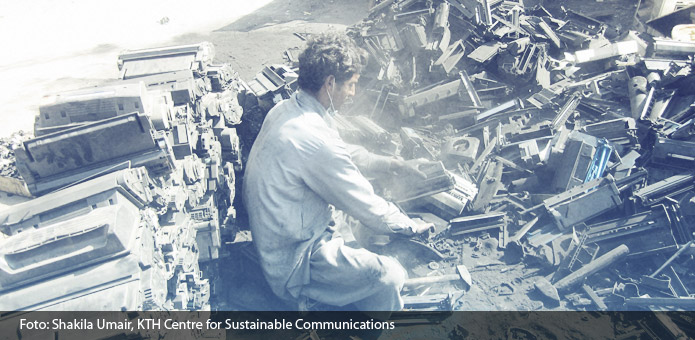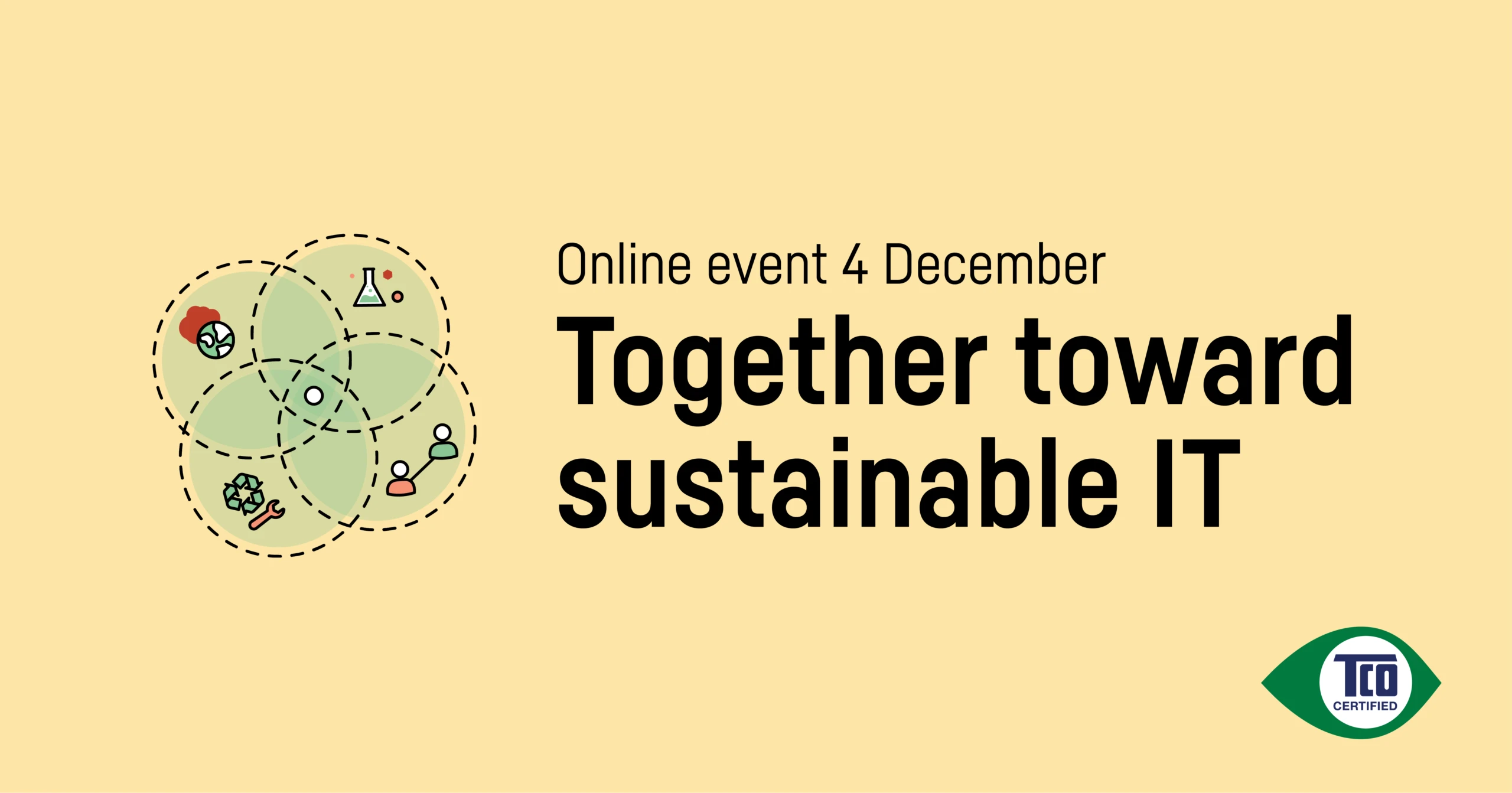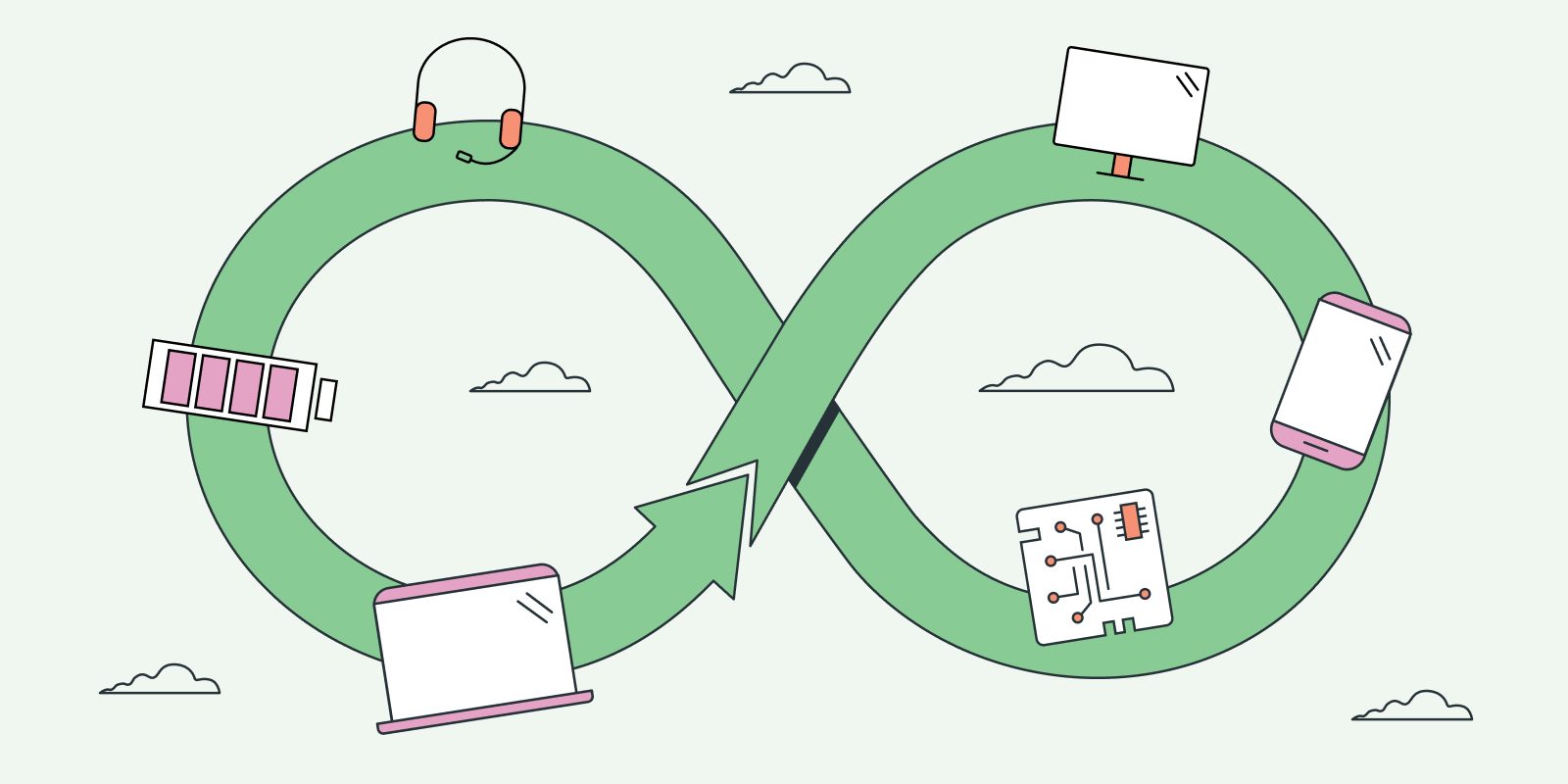A new study¹ on the effects of E-waste on human health reveals serious negative outcomes for those dismantling and handling components of discarded electronics. The study, published by the Royal Institute of Technology in Stockholm, Sweden, details that workers, some as young as six years of age, are routinely exposed to hazardous materials and inhalation of toxic gases through direct handling of discarded electronics.
People affected by this health crisis are mostly in areas where there is little knowledge about the health risks and have in many cases no access to basic health care or social protections.
A major obstacle to solving the problem is that manual handling of e-waste is a vital income source in parts of the world where e-waste is exported to. Shakila Umair of the Royal Institute of Technology comments:
“There are massive health problems in Pakistan which can directly be attributed to e-waste handling, yet it is an activity that supports thousands of people.”
To alleviate some of the most immediate concerns, small changes, such as the use of protective gloves and face masks, could make a big difference, but is something the workers can’t afford.
Want to learn more?
By asking for TCO Certified in procurement organizations can help extend the life span of IT products and reduce e-waste.
Re-use – an alternative to e-waste?
E-waste is a huge and growing problem. In the US alone, over 112 000 laptop and desktop computers are discarded every day and the estimated amount of yearly e-waste worldwide is between 30-40 million metric tons. What many IT-using companies and organizations don’t realize is that there is a strong second hand market for IT equipment.
“The life cycle of a computer can be extended by several years if companies and organizations were to take advantage of the re-use opportunities available to them,” comments Jonas Carlsson, President of Inrego, which specializes in the refurbishment of IT products.
Other experts point to the practical challenges of computer re-use including data security measures and other company rules that make re-using or donating IT products more difficult.
“Unfortunately, another challenge is the human factor,” says Jolanda van Rooijen, former manager of IT and Corporate Social Responsibility at a world leading IT company, now a researcher in Industrial Technology at Uppsala University.
“A lot of people simply aren’t interested in an older product, even if it’s fully functional. Besides, the IT vendors encourage companies to replace their equipment every three years or so.”
How TCO Certified helps tackle the e-waste problem
“Criteria included in TCO Certified reduce the risk of hazardous substances occurring in IT products,” comments Emma Nolte, Environmental Expert at TCO Development.
“This is an important step in helping alleviate the health risks for those dealing with electronic waste today in what is a largely uncontrolled environment. TCO Certified also requires that IT brands offer take back programs in areas where it is not currently required by law and that spare parts are available for all certified products for a full three years after it’s final production. We believe these are critical steps for increasing a product’s usable life.”
¹ https://cesc.kth.se/e-waste-recycling-at-whose-expense




